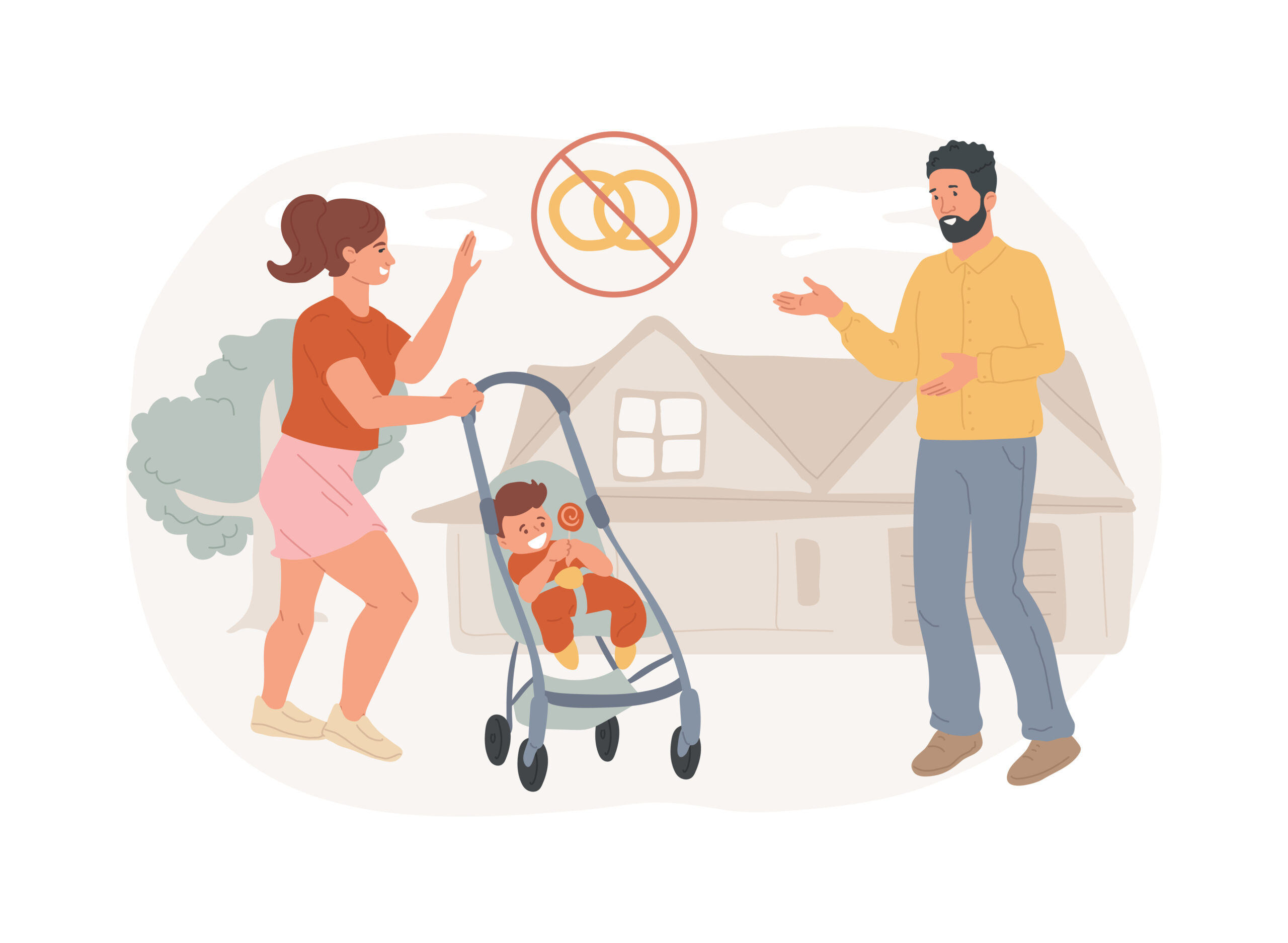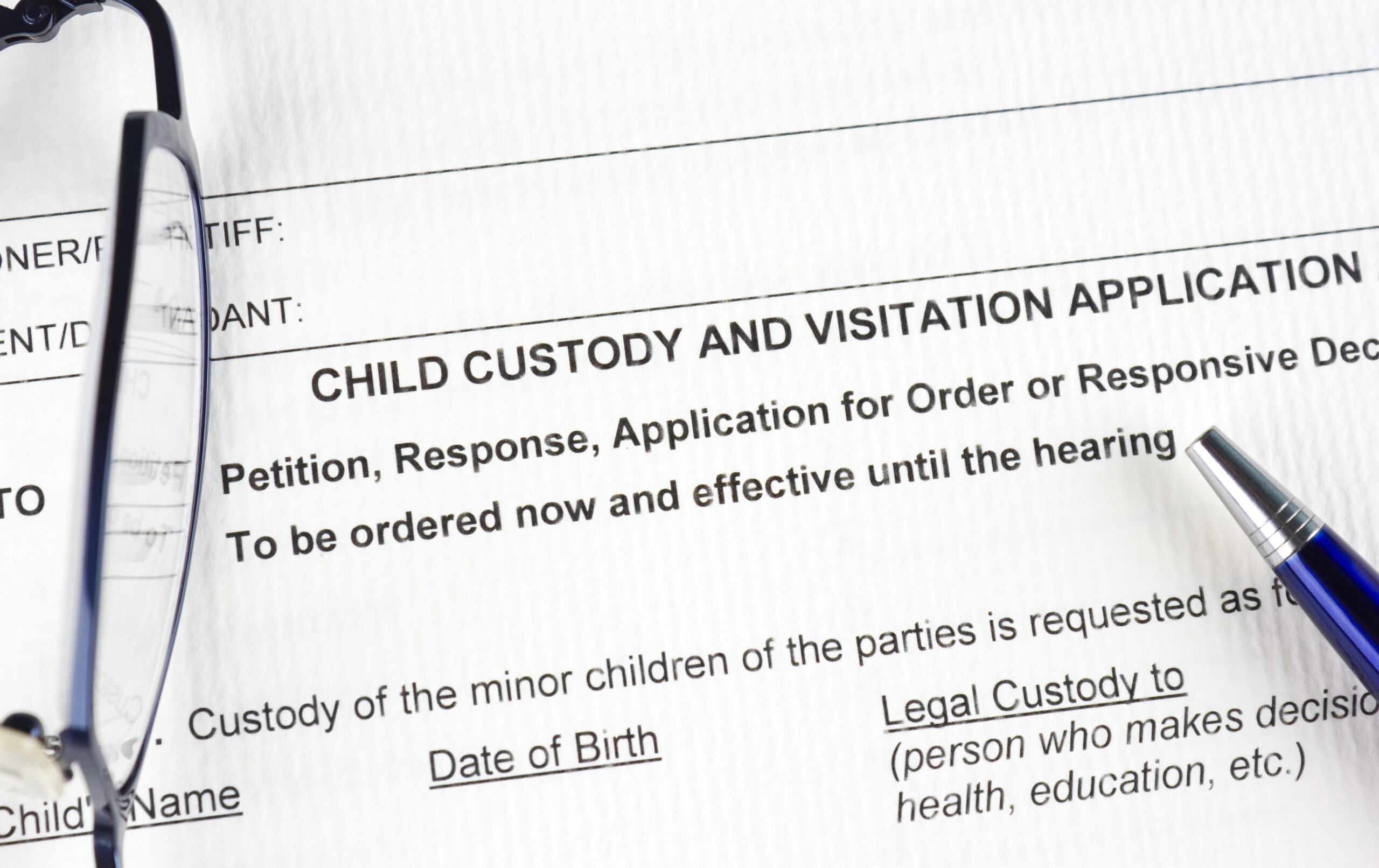
Who gets child custody if the parents are not married? In California, custody decisions for unmarried parents can be complex. Typically, unmarried mothers automatically get custody from the moment of the child’s birth. On the other hand, unmarried fathers must establish legal paternity to gain custody or visitation rights. Understanding the different types of custody, like physical and legal custody, and knowing the rights of unmarried parents can help manage this process.
This guide will provide clear and comprehensive information about custody for unmarried parents in California, the process of establishing paternity, the rights of both mothers and fathers, different types of custody arrangements, and how to file for custody or visitation rights.
- 4 types of custody arrangements for unmarried parents
- Who gets child custody if the parents are not married?
- How to establish paternity as an unmarried parent
- Visitation rights for unmarried parents
- 5 reasons you should consult an attorney for child custody rights as an unmarried parent
Types of Custody Agreements for Unmarried Parents
Unmarried parents have several custody agreements available, which you can customize to fit your unique situation. Here are the main types of custody:
1. Legal Custody
Legal custody involves the right to make important decisions about the child’s life, including those surrounding education, health care, and welfare. Legal custody can be:
- Joint Legal Custody: Both parents share the right to make important decisions about their child’s life, including education, healthcare, and religious upbringing. This arrangement encourages both parents to be involved in every aspect of their child’s welfare.
- Sole Legal Custody: Only one parent has the authority to make major decisions about the child’s life. The court might award this if it deems the other parent unfit or unable to make responsible decisions.
2. Physical Custody
Physical custody refers to where the child lives and who takes care of the child on a day-to-day basis. Physical custody can be:
- Joint Physical Custody: The child lives with both parents according to a schedule that allows substantial and frequent contact with each parent. This arrangement keeps both parents actively involved in the child’s daily life.
- Sole Physical Custody: The child resides primarily with one parent, while the other parent may have visitation rights. Parents often use this arrangement when one parent is better suited to provide a stable living environment.
3. Sole Custody
One parent has both legal and physical custody of the child. This parent makes all important decisions, and the child lives primarily with them. The non-custodial parent might still have visitation rights, but their role is limited.
4. Joint Custody
This combines joint legal and physical custody, meaning both parents share decision-making responsibilities, and the child spends much time living with both parents. This arrangement supports a balanced and stable upbringing and allows the child to maintain strong relationships with both parents.
Who Gets Child Custody if the Parents Are Not Married?
The rights of unmarried parents are not the same for the father and mother, at least when the child is born. The mother automatically gets sole legal and physical custody of the child from birth, while the father must still legally establish paternity to obtain any parental rights, even if they are listed as the father on the child’s birth certificate. Once paternity is confirmed, the father can seek custody and/or visitation rights.
How to Establish Paternity as an Unmarried Parent

There are two main ways to establish paternity for unmarried fathers in California:
1. Voluntary Declaration of Paternity (VDOP)
This is the simplest method to establish legal paternity, where both parents voluntarily sign a VDOP form declaring the man as the child’s legal father. This form is often signed at the hospital when the child is born but can also be signed later at certain government offices or in the presence of a notary. Once filed with the California Department of Child Support Services Parentage Opportunity Program, the VDOP has the same legal effect as a court order, establishing the legal parentage without going to court.
2. Court-Ordered Paternity
If there is any dispute or the VDOP is not signed, either parent can file a paternity case in family court. The court may order genetic testing, such as a DNA test, to determine paternity. Once the court establishes paternity, the father can seek custody or visitation rights.
Visitation Rights for Unmarried Parents

The court determines the father’s visitation rights once he establishes paternity. Courts generally encourage frequent and meaningful visitation to foster strong relationships between the child and both parents. There are different types of visitation orders, including scheduled visitation, reasonable visitation (flexible arrangements), supervised visitation (if there are safety concerns), and, in extreme cases, no visitation if it would be harmful to the child.
Unmarried parents can create a mutually agreed-upon visitation plan and formalize it through a court-approved parenting plan. If the parents cannot agree, either parent can request modifications to custody and visitation orders to better reflect the child’s current needs and best interests. The court will decide based on the child’s best interests, considering factors such as the child’s age, health, emotional ties, and each parent’s ability to care for the child.
Can I Stop the Other Parent From Being Around My Child?
To stop the other parent from being around your child, you must prove to the court that the parent poses a risk to the child’s safety or well-being. This can be due to abuse, domestic violence, neglect, substance abuse, or other harmful behaviors. You can file for a restraining order or request supervised visitation to ensure the child’s safety. The court will evaluate the evidence and make a decision based on protecting the child’s best interests.
Importance of Consulting With A Family Law Attorney

If you are an unmarried parent in California and are dealing with custody issues, we strongly recommend you consult a family law attorney. Here’s why:
- Understanding Your Rights: A lawyer can explain your legal rights and responsibilities as an unmarried parent to help you understand how California laws apply to your situation and to know exactly where you stand.
- Establishing Paternity: If you are the father, you must establish paternity to gain custody or visitation rights. A lawyer can guide you through signing a Voluntary Declaration of Paternity or getting a court order for a paternity test.
- Creating Custody Agreements: Lawyers can help you create and formalize custody and visitation plans that meet legal standards and are in the child’s best interest to avoid future disputes and clearly define each parent’s role.
- Handling Court Procedures: If custody disputes arise, a lawyer can represent you in court. They will present your case effectively, considering all relevant factors to protect your rights and your child’s best interests.
- Enforcing and Modifying Orders: A lawyer can help enforce existing custody and child support orders. If circumstances change, they can assist in modifying these orders to reflect the new situation so that the arrangements continue to benefit your child.
Get the Support You Need for Custody With Silva & Associates
Figuring out custody is never easy, but we can help you create a custody plan that provides support and structure. Silva & Associates is here to help if you’re dealing with custody issues. We understand unmarried parents’ challenges and can guide you through the legal process.
If there are disputes about a child’s parentage, we will make sure your rights, as well as your children’s rights, are protected. Contact Silva & Associates today to schedule a consultation, or fill out the form below, and get the support you need.